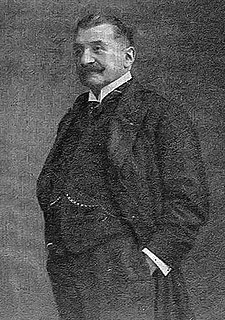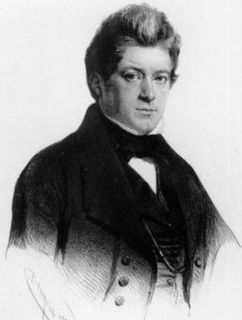Antoine Lefort-Mousel (1879 – 1928) [1] was a Luxembourgish politician and diplomat. A member of Luxembourg's Chamber of Deputies for the Party of the Right, he served as the Director-General for Public Works from 24 February 1916 until 28 September 1918. Later, he served as a diplomat, including as chargé d'affaires in Switzerland.

Luxembourg, officially the Grand Duchy of Luxembourg, is a small landlocked country in western Europe. It is bordered by Belgium to the west and north, Germany to the east, and France to the south. Its capital, Luxembourg City, is one of the three official capitals of the European Union and the seat of the European Court of Justice, the highest judicial authority in the EU. Its culture, people, and languages are highly intertwined with its neighbours, making it essentially a mixture of French and German cultures, as evident by the nation's three official languages: French, German, and the national language, Luxembourgish. The repeated invasions by Germany, especially in World War II, resulted in the country's strong will for mediation between France and Germany and, among other things, led to the foundation of the European Union.
A politician is a person active in party politics, or a person holding or seeking office in government. Politicians propose, support and create laws or policies that govern the land and, by extension, its people. Broadly speaking, a "politician" can be anyone who seeks to achieve political power in any bureaucratic institution.

A diplomat is a person appointed by a state to conduct diplomacy with one or more other states or international organizations. The main functions of diplomats are: representation and protection of the interests and nationals of the sending state; initiation and facilitation of strategic agreements; treaties and conventions; promotion of information; trade and commerce; technology; and friendly relations. Seasoned diplomats of international repute are used in international organizations as well as multinational companies for their experience in management and negotiating skills. Diplomats are members of foreign services and diplomatic corps of various nations of the world.




